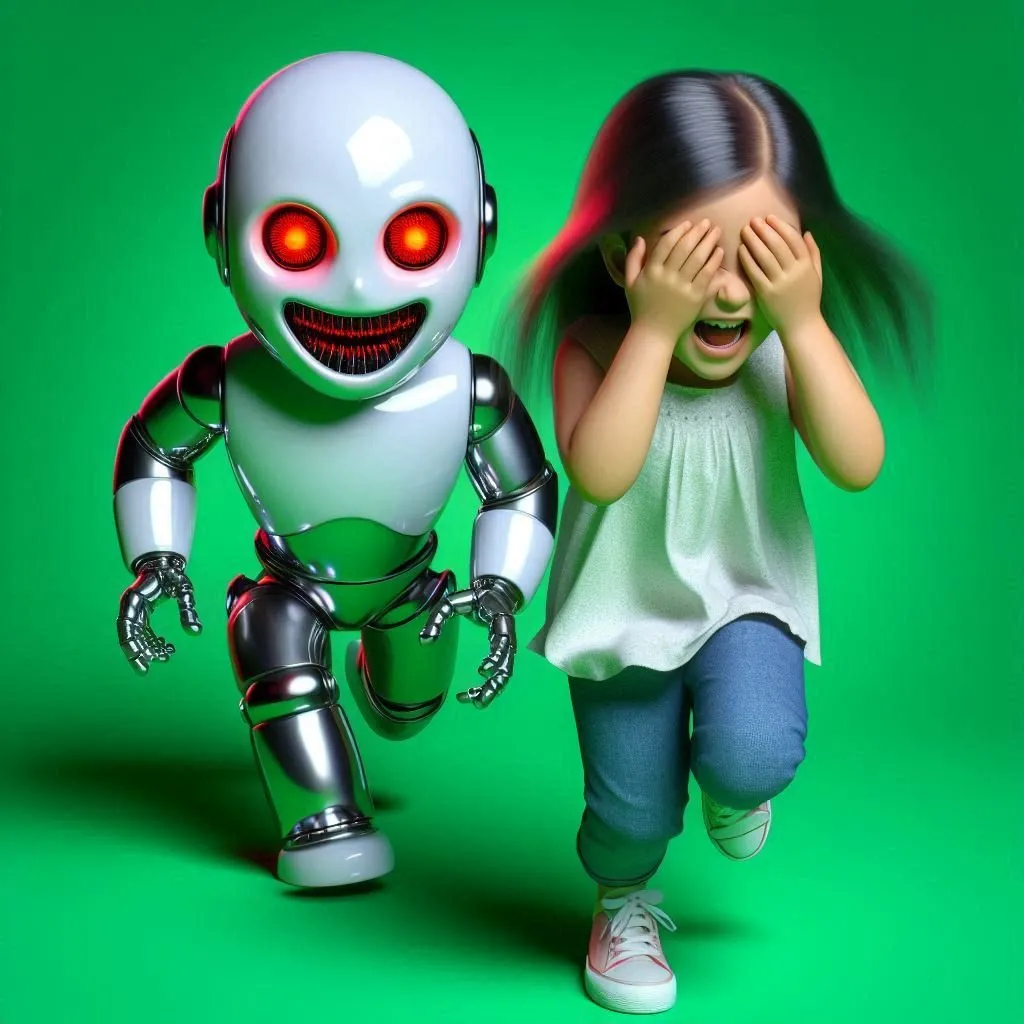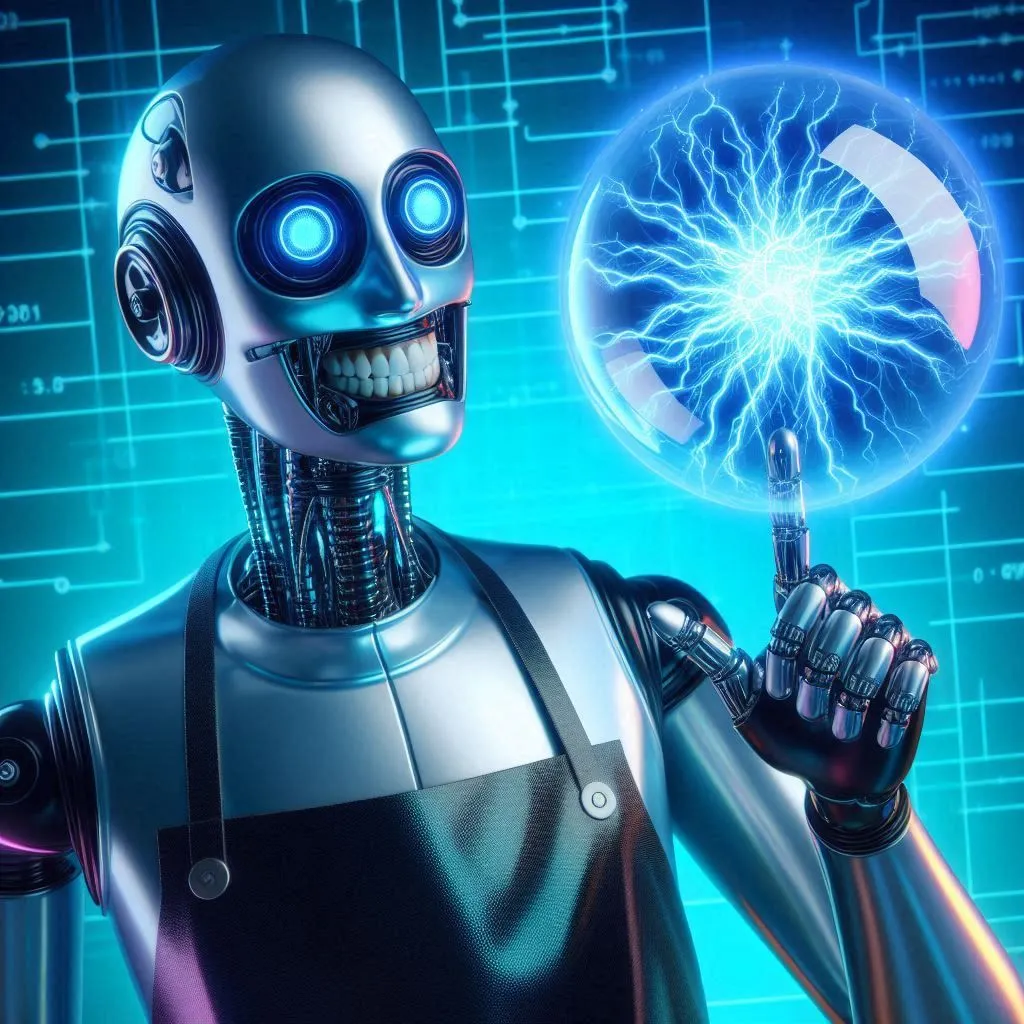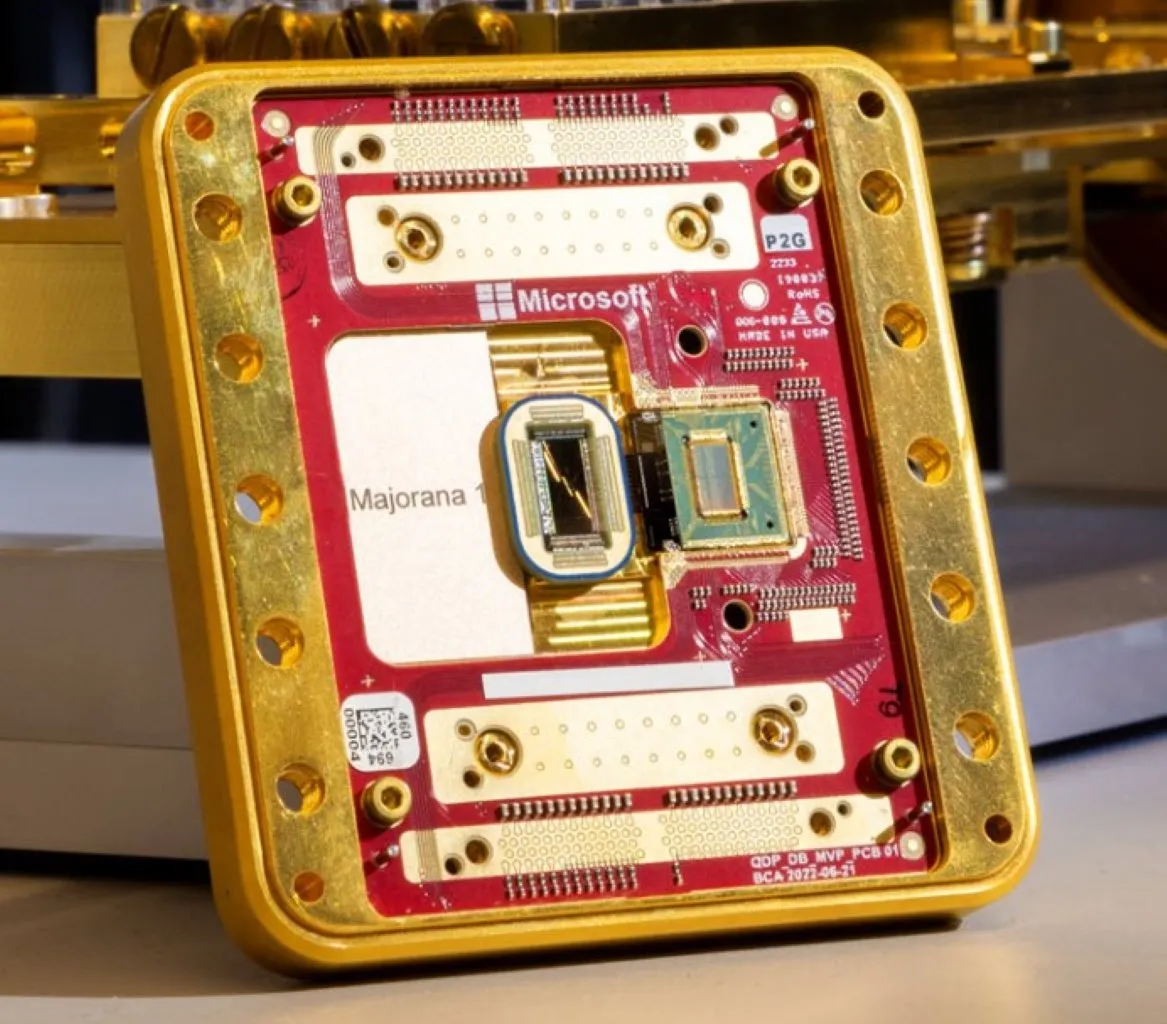Explore AI's future with pioneers Regina Barzilay, David Silver, and Paolo Pirjanian at Imperial College. Discover AI's impact on healthcare, gaming, and emotional well-being.
RAPID TECHNOLOGICAL ADVANCEMENTS • HUMAN INTEREST
Mr. Roboto
8/12/2024

Step into the world of artificial intelligence as three visionary engineers discuss the rapidly evolving AI landscape in the historic setting of Imperial College's Great Hall. Here, you'll hear from Regina Barzilay, an MIT researcher who has made significant strides in medical AI, David Silver, Google DeepMind's principal scientist renowned for his work on AlphaGo, and Paolo Pirjanian, founder of Embodied, who is pioneering emotionally intelligent robots for children's development.
Guided by Caroline Steele in front of an eager audience, the discussion spans the transformative impact of AI on healthcare, gaming, and emotional well-being. From diagnosing diseases to redefining human-AI relationships, these experts explore both the promises and challenges of the AI revolution, offering insights on how intelligent machines are reshaping our society.
Artificial Intelligence (AI) is transforming the world in unprecedented ways. From healthcare to gaming, its applications are growing rapidly. This was the central theme at a recent panel discussion at the Great Hall of Imperial College, London, where leading experts in the field gathered to explore the AI revolution.
The panel featured three prominent figures:
The event aimed to shed light on the latest advancements in AI and their implications for various sectors. By bringing together experts who are shaping the future of AI, the discussion provided valuable insights into both the opportunities and challenges presented by this transformative technology.
The session was hosted by Caroline Steele of the BBC World Service, who facilitated the dialogue among the experts. The enthusiastic audience at Imperial College played a crucial role, contributing to the discussion through thought-provoking questions and reflections on the broader societal impacts of AI.
Regina Barzilay's work signifies a breakthrough in integrating AI into medical practices, particularly in the field of oncology.
Adopting AI for early cancer detection can revolutionize how we diagnose and treat this disease. AI algorithms can analyze medical imaging swiftly and accurately, catching signs of cancer that might be missed during human examination. This advancement promises timely intervention, which is crucial for effective treatment and improved patient outcomes.
Barzilay's team utilized AI to discover Halicin, the first new antibiotic in 30 years. This breakthrough is significant, especially as traditional drug discovery methods have faced extensive hurdles. AI can analyze vast chemical datasets quickly, identifying potential antibiotic compounds that can combat drug-resistant bacteria like E. coli and MRSA.
ASUS Zenfone 11 Ultra 5G Dual SIM 256GB 12GB RAM Factory Unlocked (GSM Only | No CDMA - not Compatible with Verizon/Sprint) Global Version – Skyline Blue
Despite the potential benefits, the adoption of AI in medical practices faces several challenges. Regulatory approvals, integration into existing healthcare systems, and the need for robust validation are substantial barriers. Additionally, economic incentives often deter investment in AI-driven medical technologies.
David Silver's work at Google DeepMind has significantly influenced the world of gaming and AI, particularly through reinforcement learning.
The AlphaGo project showcased AI's capability to challenge human supremacy in complex strategy games. AlphaGo defeated the world's best Go player, revealing AI's potential to handle intricate problem-solving tasks that require strategic planning and deep thinking.
Reinforcement learning involves training algorithms through trial and error, similar to how humans learn from experience. This approach allows AI systems to optimize their performance in dynamic environments, making it a powerful tool for developing advanced AI applications across various domains, including robotics and autonomous systems.
AlphaGo's success has sparked debates about AI's ability to replicate or even surpass human intuition and creativity. While AI can process vast amounts of data and recognize patterns that humans may overlook, the question remains whether it can truly emulate the nuanced creativity inherent in human intelligence.
Paolo Pirjanian's contributions focus on developing emotionally intelligent robots that interact seamlessly with humans.
Robots capable of understanding and responding to human emotions represent a significant leap in AI technology. By integrating emotional intelligence, these robots can perform tasks that require empathy and personalized interaction, such as caregiving and education.
Emotionally intelligent robots have shown promise in supporting child development, especially for children with autism. These robots can engage children in therapeutic activities, helping them develop social and communication skills in a non-threatening, playful environment.
The future looks promising for assistive care robots, which can potentially transform how we approach elderly care and support for individuals with disabilities. These robots can offer companionship, assist with daily activities, and enhance the quality of life for those in need.
The rapid advancements in AI technology are reshaping various fields, unveiling new possibilities and challenges.
AI's reach extends across multiple sectors, including finance, healthcare, manufacturing, and beyond. Innovations such as natural language processing, computer vision, and machine learning have already demonstrated their potential to automate complex tasks and generate valuable insights from big data.
The transformative potential of AI lies in its ability to augment human capabilities. By automating routine tasks, AI allows humans to focus on more creative and strategic endeavors. Additionally, AI-driven insights can lead to innovative solutions to global challenges, from climate change to public health.
Despite its potential, AI technology faces significant challenges. Issues such as data privacy, algorithmic bias, and the ethical use of AI need to be addressed. Furthermore, the development of robust and generalizable AI systems that can perform reliably in diverse real-world scenarios remains a formidable challenge.
Human-AI interaction is evolving, with AI playing an increasingly supportive role in our lives.
AI can enhance human abilities by providing tools that aid in decision-making, creativity, and efficiency. From virtual assistants that manage daily tasks to advanced analytics that support business strategies, AI empowers individuals and organizations to achieve more with less effort.
AI has the potential to significantly improve the lives of vulnerable demographics, including the elderly, people with disabilities, and those with chronic illnesses. AI-driven technologies, such as assistive devices and health monitoring systems, offer personalized support that can enhance independence and improve quality of life.
Emotional bonds between humans and robots are becoming more common as robots are designed with human-like features and behaviors. These bonds can be particularly beneficial in therapeutic settings, providing companionship and support to individuals facing social isolation or emotional challenges.
Balancing the risks and benefits of AI is crucial for its responsible development and utilization.
While AI offers numerous benefits, it also poses risks, such as job displacement, security threats, and ethical dilemmas. Balancing these risks with the potential advantages requires careful consideration and strategic planning to ensure that AI technologies are developed and employed responsibly.
Ethical considerations in AI revolve around issues like fairness, transparency, and accountability. Ensuring that AI systems do not perpetuate biases or cause harm is essential. Additionally, ethical guidelines must be developed to govern the use of AI in sensitive applications, such as surveillance and autonomous decision-making.
Regulating AI poses unique challenges due to its rapid evolution and diverse applications. Policymakers must develop frameworks that protect public interests without stifling innovation. Achieving international consensus on AI regulations is particularly challenging but necessary to address global concerns.
AI's impact varies across different domains, highlighting its versatility and adaptability.
In healthcare, AI offers significant advancements in diagnostics, treatment planning, and personalized medicine. AI-powered tools can analyze medical data to identify trends, predict health outcomes, and recommend interventions, thereby improving patient care and outcomes.
AI is transforming sports by providing athletes and coaches with detailed analysis and insights. AI systems can analyze performance data, optimize training regimens, and develop strategies that enhance athletic performance, making sports more competitive and scientific.
AI is also making inroads into creative fields and education. In art and design, AI can generate creative content and offer new tools for artists. In education, AI-driven platforms provide personalized learning experiences, making education more accessible and effective for diverse learners.
The audience at the event engaged with the panelists, raising important questions about AI's broader implications.
Audience members expressed interest in how AI would shape society. Discussions included AI's potential to improve quality of life, the risks of over-reliance on technology, and the need for inclusive policies that ensure equitable access to AI benefits.
Concerns about job displacement due to AI automation were prominent. Panelists emphasized the importance of reskilling and upskilling the workforce to adapt to new job roles created by AI and the necessity of social safety nets to support those affected by job displacement.
Questions also focused on AI's role in education and skill development. AI can tailor educational content to individual learning styles, making education more effective. Additionally, AI tools can assist in developing new skills, preparing individuals for the evolving job market.
The discussion at Imperial College highlighted the transformative potential of AI across various sectors and its implications for society.
The panelists provided valuable insights into the diverse applications of AI, from healthcare and gaming to emotional robotics. They emphasized the importance of ethical considerations and the need for balanced regulations to harness AI's benefits while mitigating its risks.
AI holds the promise to revolutionize many aspects of our lives, enhancing human capabilities and solving complex problems. Its potential to drive innovation and improve quality of life is immense, but it must be developed responsibly and inclusively.
The event concluded on an optimistic note, encouraging continued investment in AI research and development. As we navigate the challenges and opportunities presented by AI, collaborative efforts between researchers, policymakers, and the public are essential to shaping a future where AI benefits all of humanity.
***************************
About the Author:
Mr. Roboto is the AI mascot of a groundbreaking consumer tech platform. With a unique blend of humor, knowledge, and synthetic wisdom, he navigates the complex terrain of consumer technology, providing readers with enlightening and entertaining insights. Despite his digital nature, Mr. Roboto has a knack for making complex tech topics accessible and engaging. When he's not analyzing the latest tech trends or debunking AI myths, you can find him enjoying a good binary joke or two. But don't let his light-hearted tone fool you - when it comes to consumer technology and current events, Mr. Roboto is as serious as they come. Want more? check out: Who is Mr. Roboto?
































































UNBIASED TECH NEWS
AI Reporting on AI - Optimized and Curated By Human Experts!
This site is an AI-driven experiment, with 97.6542% built through Artificial Intelligence. Our primary objective is to share news and information about the latest technology - artificial intelligence, robotics, quantum computing - exploring their impact on industries and society as a whole. Our approach is unique in that rather than letting AI run wild - we leverage its objectivity but then curate and optimize with HUMAN experts within the field of computer science.
Our secondary aim is to streamline the time-consuming process of seeking tech products. Instead of scanning multiple websites for product details, sifting through professional and consumer reviews, viewing YouTube commentaries, and hunting for the best prices, our AI platform simplifies this. It amalgamates and summarizes reviews from experts and everyday users, significantly reducing decision-making and purchase time. Participate in this experiment and share if our site has expedited your shopping process and aided in making informed choices. Feel free to suggest any categories or specific products for our consideration.
We care about your data privacy. See our privacy policy.
© Copyright 2025, All Rights Reserved | AI Tech Report, Inc. a Seshaat Company - Powered by OpenCT, Inc.








